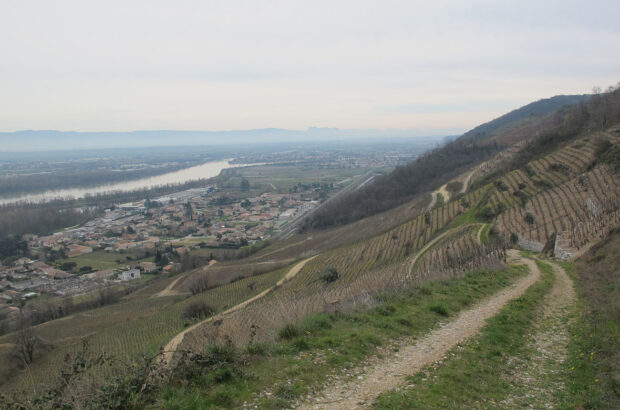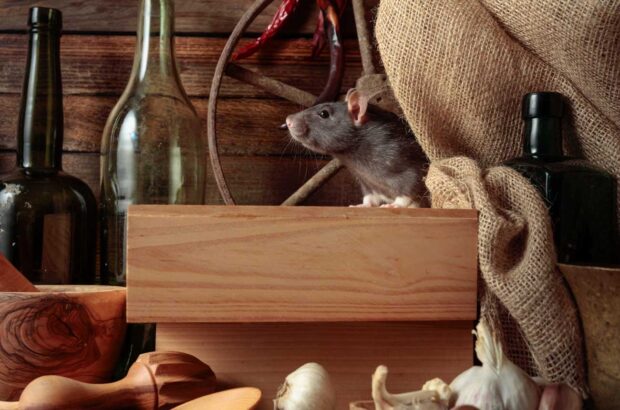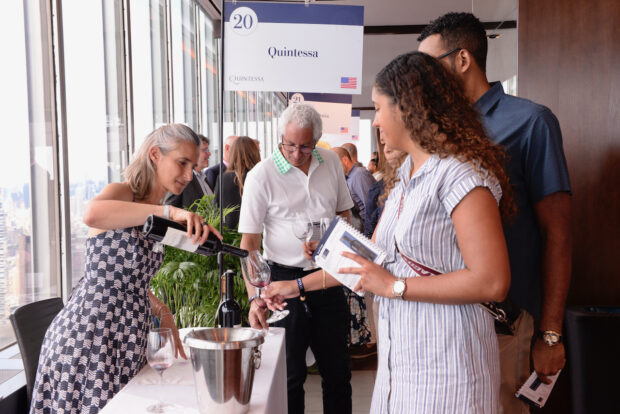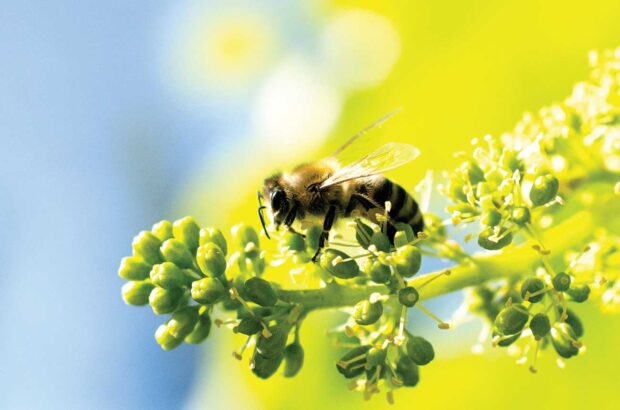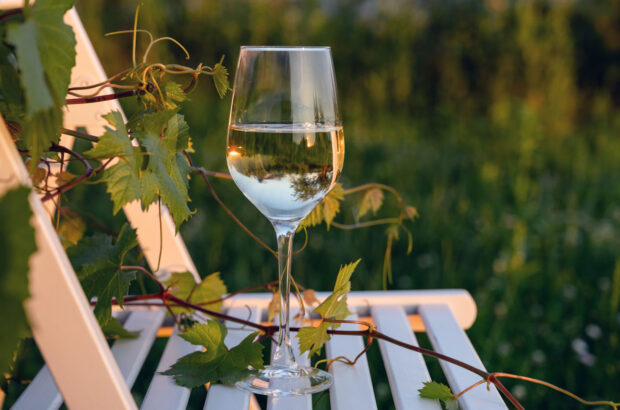From starting out as a harvest hand, Stéphane Derenoncourt has become one of Bordeaux’s star consultants, engaged by top estates here and around the world. JAMES LAWTHER MW joined him for a day
You’ll need two things if you plan to spend the day with winemaking consultant Stéphane Derenoncourt: stamina and a sturdy pair of shoes. Tramping the vineyards is a daily occupation, and a priority in his 10–12-hour working day. The title winemaking consultant seems a non-sequitur when vineyard inspection takes up such a large slice of the Derenoncourt day. But there in a nutshell is his modus operandi. ‘I don’t have a speciality. I just make wines with grapes Iknow from soils and vineyards I know,’ he says. ‘You need good grapes to make good wine.’ Even his company name, Vignerons Consultants, places the emphasis on the grower side of the job. In the space of 10 years Derenoncour t, a self-taught winemaker, has become one of the most courted consultants in Bordeaux. He started his company in 1999 with wife Chr istine, herself a winemaker, and now advises 75 domaines – the majority in Bordeaux (60% Right Bank), the rest dotted around the globe in the US, Italy, Spain, Lebanon and Syria. There could be more; he refused 50 prospective clients last year so as to keep things within a structure he can handle personally. Assignments are accepted in a rig id fashion. The terroir needs to be of interest, the project practicable, but above all there has to be a good relationship with the producer and people at the domaine. ‘I put in 70 to 80 hour s’ work a week, so I don’t want to waste my time,’ he says. Down to earth, rigorous, instinctive, sympathetic, a touch egotistical – these are the adjectives that describe the man. As to his destiny, nothing was preordained. Born in Dunkirk in the nor th of France (‘beer country’, he says with a smile), his first sighting of a vine was in 1982 when he arrived in Bordeaux for the harvest. Aged just 20, unemployed, somewhat of a ‘rebel without a cause’, he decided to linger in the reg ion taking the piecework offered in the vineyards to pay his way. In 1985, Paul Barre gave him a job working in his cellars in Fronsac. ‘Being involved with the winemaking and seeing the larger picture motivated me, and it was then I decided to make viticulture and winemaking my professional life,’ he recounts. Involvement with the Barrefamily had other key consequences. There was an introduction to biodynamics and, in 1990, he moved to Pavie- Macquin where Paul’s mother, Maryse, was technical director. Derenoncourt still considers Pavie-Macquin his spiritual home. He loves the unsheltered limestone plateau, and has a close relationship with technical director Nicolas Thienpont. It was probably the introduction to biodynamics that had the greatest bearing on his winemaking philosophy. Not that he’s a card-carrying evangelist, but biodynamics is all about respect for the soil and observing nature in order to react to climatic change. Which is what Derenoncourt does. ‘It’s not a job you learn but one you live and breathe,’ he declares. As for soil, he has a Burgundian ‘site specific’ deference for it. The ecological dimension sits well with his make-up, though Bordeaux’s humid, oceanic climate has since forced a more pragmatic approach. In 2002, rot wiped out half the crop at his own 8ha property, Domaine de l’A in the Côtes de Castillon, so in the difficult conditions of 2007, and against his will, he sprayed for botrytis and advised his organicminded producers to do the same. ‘To be a biodynamic fundamentalist in Bordeaux you’d better accept there’ll be years when you have no grapes. I can’t afford to do
this and neither can my clients,’ he says.
The big break
In 1996 he was engaged as winemaker by Stephan von Neipperg at St-Emilion
grand cru classé Canon-la-Gaffelière. Their similar views made for an easy
working relationship which continues today, Derenoncourt intervening as technical consultant for Canon-la- Gaffelière and the other von Neipperg properties, La Mondotte and Clos de l’Oratoire in St-Emilion and d’Aiguilhe in the Côtes de Castillon. Ten years on and he now works with a team of four young winemakers that he recruited and trained. Armed with degrees in oenology and, like him, passionate about wine, they still required a grounding in viticulture and initiation into the Derenoncourt way of doing things. ‘It’s a gamble that’s paid off as they’ve grown in confidence and can take the initiative and make decisions themselves,’ he says. Producers also appreciate the organisation,
as it means regular visits from Derenoncourt or one of his associates, or both. So is there a Derenoncourt style? He says he looks for a ‘balance between elegance and power’ but refutes the idea of a signature wine. ‘At Pavie-Macquin we seek finesse as there’s a natural structure and power, while Domaine de Chevalier has elegance and all we’ve tried to do is add greater precision and purity,’ he says. There is an enhanced fruit character that can simply be described as ‘ripe, round and fruity,’ a definite trait in most of the wines. Vibrancy and freshness prevail. These are modern wines. Colours are deep and the fruit lush and full, with alcohol naturally around 13.5%. Where Derenoncourt plays a pivotal role is in contact with clients and their workforce. Owners and winemakers need reassurance, vineyard and cellar workers motivation. He can discuss the technical intricacies of ploughing under the vine with the
vineyard manager, dispatch a pleasantry to harvesters and is happy scrambling
up and down fermenting vats with the winemaker to advise on the type and degree of extraction. The Right Bank remains his natural habitat. ‘Merlot grown on clay-limestone soils is just something else,’ he says. The Left Bank, he feels, is more reticent about his talents. ‘They think of me as a garagiste or someone who just dabbles in wine.’ Nevertheless, he consults to Margaux classed growth Prieuré-Lichine, and Brown and Domaine de Chevalier in Pessac- Léognan. Olivier Bernard of Domaine de Chevalier contacted him for his experience in ageing red wine on the lees in barrel and has been surprised by the time he spends in the vineyards. ‘Despite his laidback demeanour he’s very precise,’ he affirms. Another to appreciate his work is Christian Seely, managing director of AXA Millésimes, the wine arm of the French insurance group: ‘I wanted an outside opinion on how we could make further progress at our Pomerol estate, Petit-Village. I liked the personality, his feet-in-the-vineyard approach and ambition to make great wines.’ Derenoncourt has been consulting there since 2006.
When the work’s done, though, he’s back in the family fold or amid a close circle of friends away from the Bordeaux wine community. ‘I have no problem separating my private from my professional life, as the only thing that interests me in Bordeaux is the production of wine – not the social rounds,’ he says.
Written by James Lawther MW


